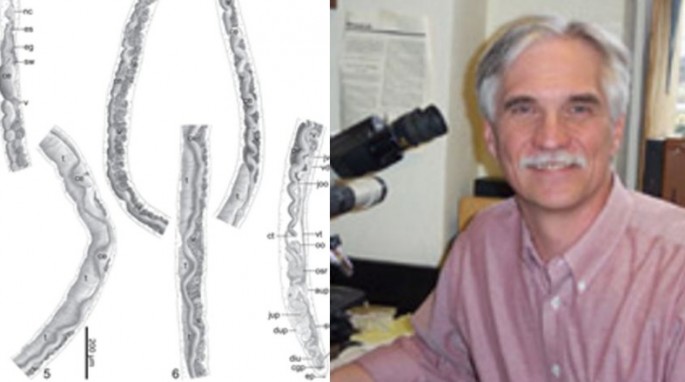The Republicans are going to love this. A team of American parasitologists that discovered a new species of parasitic flatworm infecting turtles has named this parasite in honor of U.S. President Barack Obama.
Naming the new flatworm found in turtles in Malaysia "Baracktrema obamai" apparently has no political undertones and the scientists apparently aren't rabidly anti-Obama.
Dr. Thomas R. Platt, an authority on turtle parasites who initially discovered and collected the new species, said he was inspired to name his discovery after Obama when genealogy research traced his and the president's families back to a common ancestor.
"I have named a number of species after people I admire, from my father-in-law, my Ph.D. advisor, and good friends who are academics and/or amateur naturalists," Platt said.
"Baracktrema obamai will endure as long as there are systematists studying these remarkable organisms."
Naming a species after an individual is not uncommon and is typically viewed as an honor.
Baracktrema obamai was the last organism new to science Dr. Platt found before he retired from Saint Mary's College in Indiana.
Platt and his co-authors, Jackson Roberts, Dr. Raphael Orélis-Ribeiro, and Dr. Ash Bullard, of Auburn University in Alabama, based their new finding on specimens taken from two turtle hosts.
They analyzed the evolutionary history of the worm and its relationship to other turtle parasites, including the closely related Unicaecum, using a combination of genetic and morphological information.
Their results affirmed the newly discovered worm should belong in its own genus, a means of further separating the new species from all previously discovered organisms. The final conclusion: Baracktrema and Unicaecum share a recent common ancestor.
The team of American parasitologists said Baracktrema obamai is so unusual and distinctive they've named a new genus to include the new species. This is the first time such an action has been taken for this group of turtle parasites in 21 years.
Details about the proposed new genus and species, Baracktrema obamai, are presented in an article in the current issue of The Journal of Parasitology.
These turtle parasites are distant relatives and likely ancestors of the parasitic flatworms that cause the human disease schistosomiasis that debilitates millions of people in developing countries annually.
Researchers said studying the evolutionary history of this group of worms could broaden our understanding of the origins and evolution of schistosomiasis and help point the way to helpful new approaches for studying how the disease causes harm.
Another aspect of the study, which was funded by the National Science Foundation, emphasized that freshwater turtles worldwide are increasingly vulnerable to poaching and habitat loss. Many species are threatened or endangered.
Although many people understandably view parasites negatively, Dr. Platt said those who study the organisms see them as beautiful and resilient.
They "face incredible obstacles to complete their journey (life cycle) and must contend with the immune system of the host in order to mature and reproduce," he said.






















